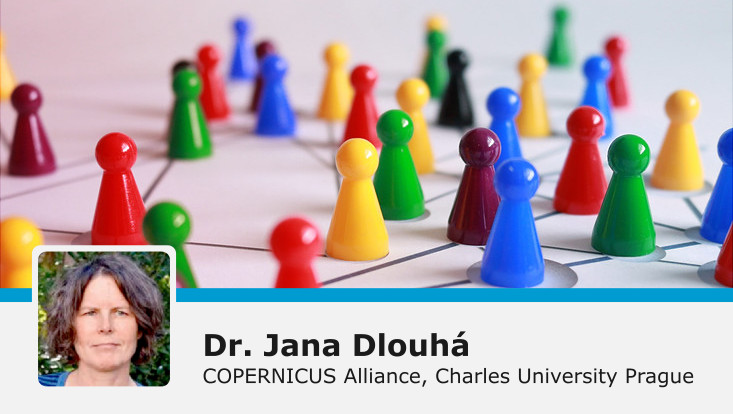
Interview with Jana Dlouhá: Top 5 Challenges for Networking on SD
28 September 2017, by Tobias Wegener

Photo: UHH/pexels
In many branches of the modern society there is a broad agreement on the importance on networking. However, there are also different challenges which arise in the context of networking ‒ especially in the field of sustainable development. In the following you find an interview with Thursday's keynote speaker Jana Dlouhá (COPERNICUS Alliance, Charles University Prague) about networking in the context of sustainable development:
What are the biggest challenges to national and international networking on SD?
- Different cultural context (plays a role in education! And policy making as well...)
- Transdisciplinarity (in case the networks strive to work transdisciplinary)
- Needed be supported internally (big demands of secretariat)
- Needed to be recognized externally (respected in their field of activity)
- Competing for same resources (and audience, in case of similar focus)
How can these challenges be overcome?
- Dialogue and clarifying key terms and concepts across cultural barriers
- Dialogue and clarifying key terms and concepts across disciplinary barriers, often with practical focus (otherwise not too productive debate ☺)
- Raise funds for everyday work – building social capital is energy consuming (and requires some economic capital as well...)
- Communicate with all, especially key actors (academic and other societal hierarchies play a role here). Develop “critical mass” for systemic change!
- Be best and innovative network of all! Be flexible and preserve your tradition not to change your concept with each new policy
Which international SD-networks are most important to know and how do they differ from each other?
- COPERNICUS Alliance (building culture of bottom-up processes and impacts)
- International Association of Universities (IAU – existing since 1950 and constantly accepting new visions, perspectives, and programs)
- International Network of Programs in Sustainability (NEPS – small, new, focused and well-grounded in research on sustainability science)
- RCE Network (established as “experimental” model of multistakeholder cooperation which developed into a powerful network with excellent examples of sustainability oriented work)
- SDSN, students networks, many others...
A look into the future of networking on SD: 10 years from now, …
Due to the role of social network in all fields of activities, networks in traditional sense will not exist any more. Actors (universities or other stakeholders) will create ad hoc coalitions supporting concrete strategies or policy measures. They will communicate in some open virtual space and tools for ensuring credibility of these channels will be efficient, reliable and user friendly. Question is whether they will take into account the most important characteristics of reliability... (and what does it mean “most important”).
Interview: Michaela Haase
